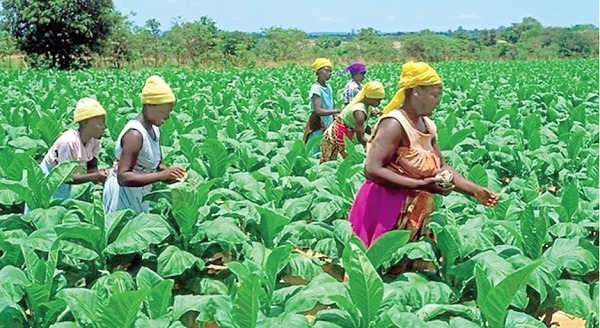
Strategies for inclusive growth in Ghana
In Ghana, the empowerment of women in agribusiness and social entrepreneurship is pivotal for driving inclusive growth and sustainable development.
As key contributors to the nation's economy and social fabric, women play a significant role in fostering positive change and community resilience. As Joyce Banda, former President of Malawi, once eloquently stated, "When you invest in a woman, you invest in a community, and when you invest in a community, you invest in the future."
Overview of women's participation:
Women's participation in agribusiness and social entrepreneurship in Ghana has been steadily increasing in recent years. However, they still face numerous challenges, including limited access to resources, land rights and financial support. Despite these challenges, women continue to demonstrate resilience and entrepreneurial spirit in pursuing their ventures.
Importance of empowering women:
Empowering women in agribusiness and social entrepreneurship is crucial for achieving sustainable development goals. By empowering women, we can unlock their potential as agents of change and catalysts for economic growth. As Melinda Gates, co-chair of the Bill & Melinda Gates Foundation, once said, "A woman with a voice is by definition a strong woman and we need to create opportunities for her to use that voice."
Strategies for empowering women:
Several strategies can be employed to empower women in agribusiness and social entrepreneurship. These include providing access to training and capacity-building programmes, facilitating access to finance and market opportunities and promoting gender-responsive policies and legislation. As Anne-Marie Slaughter, President of New America, emphasised, "Women need to feel valued, and that comes from having their work valued."
One successful initiative is the establishment of women's cooperatives and networks that provide support, training, and access to markets for women entrepreneurs. Additionally, mentorship programmes and partnerships with NGOs and government agencies can help women overcome barriers and achieve success in their ventures.
Case studies or success stories:
One inspiring example is the story of Abena, a young woman entrepreneur who started her organic vegetable farm with support from a women's cooperative. Through training and access to market linkages, Abena has been able to expand her business, increase her income and empower other women in her community.
Another success story is the work of The Shea Network, a social enterprise that empowers women in northern Ghana by providing them with training and resources to produce shea butter products. This initiative has not only improved the economic status of women but has also contributed to environmental sustainability and community development.
Challenges and opportunities:
Despite progress, women in agribusiness and social entrepreneurship still face challenges such as limited access to finance, cultural barriers and unequal access to resources and opportunities. Addressing these challenges requires concerted efforts from government, civil society and the private sector.
Opportunities exist to create enabling environments that support women's entrepreneurship through targeted interventions, policy reforms and investment in women-led initiatives. By harnessing the potential of women entrepreneurs, Ghana can unlock new pathways to inclusive growth and sustainable development.
Conclusion
Empowering women through agribusiness and social entrepreneurship is not only a matter of gender equality but also a strategic imperative for Ghana's future prosperity. By investing in women's entrepreneurship and creating supportive ecosystems, we can unlock the full potential of women as drivers of inclusive growth and sustainable development in Ghana.
As we continue on this journey, let us reaffirm our commitment to gender equality and women's empowerment, recognising the transformative impact it can have on individuals, families, communities and the nation as a whole. As Madam Ellen Johnson Sirleaf, former President of Liberia, once stated, "The size of your dreams must always exceed your current capacity to achieve them. If your dreams do not scare you, they are not big enough."
The writer is a social Entrepreneurship consultant deeply rooted in agribusiness with an interest in youth and women's development.
